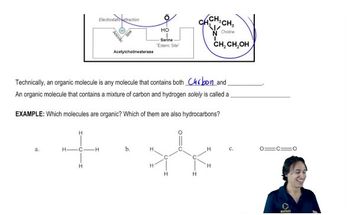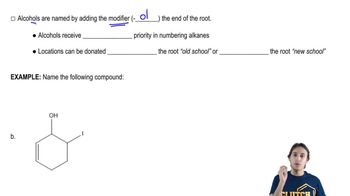What is the conjugate base of each of the following acids? [The most acidic proton is indicated.]
(d)

 Verified step by step guidance
Verified step by step guidance Verified video answer for a similar problem:
Verified video answer for a similar problem:



 2:49m
2:49mMaster The Lewis definition of acids and bases. with a bite sized video explanation from Johnny
Start learning